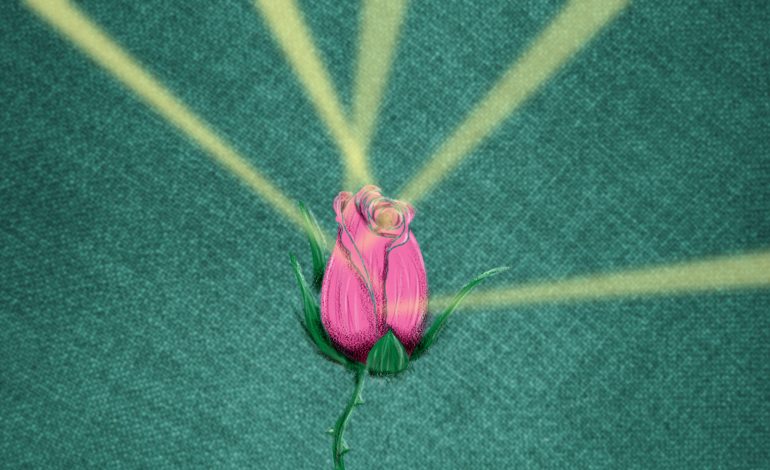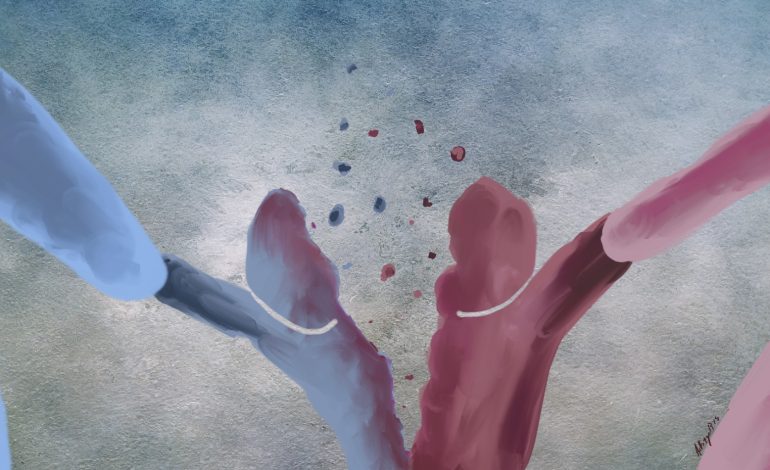First Year’s a Charm: An Anniversary Note

At a recent dinner of the youth leaders group Gerakan Mari Berbagi (GMB), I met an inspiring young woman named Tari who was about to leave on an exchange program to Japan.
She told us the story of her impoverished childhood in a village in West Java, how her parents had wanted her to quit school after junior high school because they couldn’t afford it, but how she persevered. Years later, not only had she made it to college and joined the highly selective group of young men and women in the GMB, she also passed the screening to be among the selected 15 who would spend a month with local families in Australia or Japan. She had never even been on an airplane!
In a moving testimony that left some of us in tears, she recounted how her ailing mom told her that her father would send some spending money for her travels. Excited, as she barely had money to spend, she found out later that the amount sent was Rp 200,000 (less than US$20), probably not even enough to buy a train ticket from Tokyo to Kyoto, where she would live.
A few weeks earlier, I met another incredible young woman at a writing course in which I was a faculty member. She wrote about growing up stifled in a strict family where she was forbidden to do a lot of things, including doing outdoor activities like her classmates.
“Sometimes I wished I was a boy,” she wrote.
Her path had been carved by her parents: she would study engineering at the state university in their hometown in Malang, East Java, so they could afford her schooling. But she wanted something different.
So she decided to try her luck and applied for a scholarship at the State Institute of Accountancy in Jakarta. More than anything, she craved freedom and she knew that Jakarta would provide that for her, based on stories told by her schoolmate who had been there. When she received the scholarship, she had to fight tooth and nail for her father’s approval before he finally let her go.
Now a staff at the Central Bank in Central Jakarta, her colleagues in class expressed their astonishment as we discussed her writing. Perhaps they never once suspected that this mild-mannered hijabed young woman was actually the rebellious type.
Stories like this move me significantly. They also make me happy, because they are proofs that the female species are tough and fierce and defiant amid scarcity and in the face of obstacles. They are proofs that we have the power to write our own narratives.
Of the 15 people being sent for the GMB’s exchange program, 10 were young women like Tari. I see this increasingly these days. At the two international organizations I’ve worked in the past two years, there always seems to be more women than men, with some of them holding influential positions.
Yet you don’t have too Google too hard to discover that the reality is far from ideal. Tari was luckier than most girls born to poor families who are commonly the first to be “sacrificed” when it comes to education.
Data from the Ministry of Education shows significant gender gaps in school dropout rates, with girls being more likely to drop out of school than boys. In primary and junior high school, out of every 10 children who drop out, six are girls and four are boys. In high school, the gap widens with seven girls dropping out for every three boys.
In my working trips to villages, even those in West Java, merely a couple of hours from the capital, I met countless women who already had two or three kids by the time they were 20-years old. They married young, because there were no better options for them.
Sad, because when given the opportunity and a level-playing field, girls often outperform boys in schools, as studies in the US and UK have found. The studies attribute this to the changing attitude towards education, work and marriage that have resulted in the involvement of women in the society in the past few decades.
In my own professional experience, it is often the women who are some of the most hardworking and responsible people. They work harder because often they have a lot more to prove. When it comes to workplace, women still face the proverbial glass ceiling that prevents them from rising to the leadership position. Those who manage to reach the top often have to sacrifice their personal lives, many at the cost of their families.
Birth of an Idea
You don’t have to be a development worker championing the MDG to know that when a generation of women is empowered, a whole generation that follows will thrive.
It might have been this that fueled my interest in the issue of women’s empowerment, and being a journalist by profession, writing is the most accessible tool to achieve this for me.
Last year, I teamed up with fellow journalists Hera Diani and Karima Anjani to create a different type of online publication. This publication would represent the voices of women who are rarely heard of in the mainstream women’s media. Enough of diet, fashion or celebrities. Not that they’re bad. There are other things to talk about in this world than how to lose weight so you can look great in bikini, or who J-Law is dating, or how to keep your man happy.
There are issues that need to be voiced, questions that need to be raised, teachings that need to be criticized, norms that need to be rebelled against. And sometimes there are just different ways to look at things, to tell a story, to entertain.
So we created Magdalene, “a slanted guide to women and issues” and launched it on September 26, 2013. By “guide to women”, we mean it is a guide about women/by women/for women. It is to be an empowering source of information and entertainment, and an open platform to channel different perspectives.
Starting out with a skeleton crew (even fewer at present, now that our co-founder Karima has resigned), we managed to produce something that speaks to many people. It made us realize that people are looking for a medium to speak out on issues that matter to them and that others may relate to. This continues to be our selling point both for readers and contributors (who, by the way, are not getting paid – and we are so grateful for their generosity).
But it’s not all about women. The “issues” part relate to things that matter outside of the female realm. We believe in equality, diversity, pluralism and inclusiveness. Among others, our LGBT-related (Lesbian Gay Bi-sexual Transgender) content reflects this.
We believe that everyone deserves to be heard and respected, and we’re happy to have received so much support from the LGBT community. We also love our male contributors who dare to show their feminist side, who are not afraid to live beyond the confines of ingrained patriarchy; and who, interestingly, movingly, and sometimes amusingly discard the musty gender stereotypes.
As a publication, it’s still a long way for us to be where we want to be. We are still in the process of nurturing this baby of ours, and we need all your support for it. For a start, we are planning to open a “cookie jar” to help “kick-starting” us so we can grow Magdalene into a sustainable media organization.
But help doesn’t always come in the form of financial assistance. We hope to continue to count on your support through your voices. So share your stories – write for us or just leave your two-cents on our comment section. Let people know what’s in your mind. Also don’t forget to Facebook, tweet, Google+, or LinkedIn us to your network. Let people know we are here.
As we commemorate Magdalene’s first anniversary, we invite you to celebrate your individual self, your beauty, your strength, your contradictions. The great Walt Whitman put it perfectly when he proudly declared, “I am large, I contain multitudes.” Because that’s what makes the world an exciting place.
*Read Devi’s take on ways to start an individual revolution from within.






















